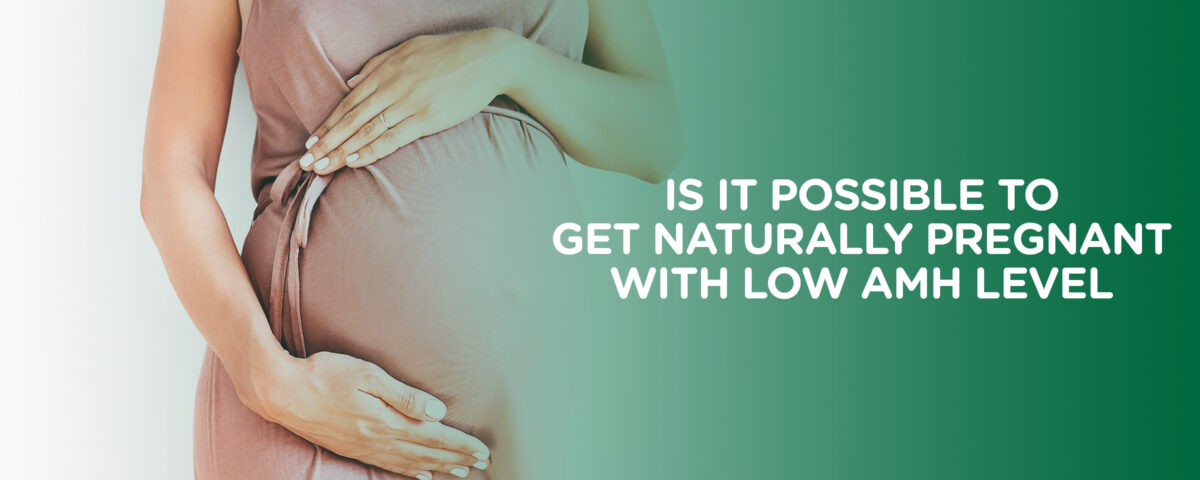
What To Do After Embryo Transfer To Increase Success In IVF ?
December 5, 2022
How To Increase Sperm Count & Make It Stronger For Pregnancy
December 20, 2022Natural Pregnancy With Low AMH & Low Egg Count
“We have been trying for so long. What could be wrong?”
One of the more common answers to this question is – Very low AMH levels.
What Is AMH?
AMH is Anti-Mullerian Hormone which is secreted by the follicles present in a woman’s ovaries. The eggs grow inside these follicles. AMH is therefore an indirect indicator of the number of eggs which are present in the ovaries. So, the more eggs you have, the higher the AMH level will be and the lesser the number of eggs, the lower the AMH will be. AMH is often evaluated when couples have difficulties getting pregnant because it helps get a picture of the ovarian reserve.
It is important to note here that this hormone is solely an indicator of the quantity/number and not the quality of eggs. So, while it is a good starting point to assess fertility, it cannot be the only factor which determines the fertility of a person.
Can I Get Pregnant With Low AMH?
There are two points to consider here:
· Your age:
The average levels of AMH vary with age. Generally, younger women have higher AMH as they have more number of eggs, and older women have a lower AMH in comparison. This is because, as the age increases, the number of eggs start declining. Women in their 20s must ideally have an AMH of around 3.0-4.0 ng/ml, while women in their early 30s usually have an AMH of about 2.5 ng/ml. If it is lower than this, conceiving can be slightly difficult but not impossible.
· Your health:
Chronic illnesses and lifestyle habits such as smoking and alcohol can also play a role in determining whether pregnancy will be easy despite low AMH levels.
Is IVF Necessary If You Have Low AMH?
IVF may be the path to pursue if you are older (35+) and have very low AMH levels. IVF is one of the most reliable methods for pregnancy with low AMH patients and will only be recommended if other factors are not in your favour. If you are in your 20s and have low AMH levels, it is advisable to make healthy lifestyle changes, follow a healthy diet, and consult a Fertility Specialist The doctor will then thoroughly evaluate you and your partner, after which she may suggest either medication and timed intercourse or IUI or IVF based on other factors affecting your chances of pregnancy.
Can You Increase AMH Levels Naturally With Food?
Foods rich in macro and micronutrients help release good-quality eggs and their maturation. This is why it is safe to say that food plays a significant role in overall fertility and not just AMH levels. We recommend ensuring that your vitamin D levels are normal by including dairy and milk products in your diet. Besides these, ginger, beans, berries, lentils, foods with Omega-3 fatty acids, vitamin B6, zinc, etc., must be a part of your regular diet.
We also advise not smoking and drinking alcohol.
Conclusion
Low AMH and pregnancy are not really interdependent unless other factors, such as age, weigh in. If you are worried, we recommend you visit a Fertility specialist and get an AMH test. It is a simple blood test that will help assess the way forward. At Plan B Fertility, we have fertility experts who will counsel you, assist you, and sketch effective treatments to help you get pregnant based on your condition. Visit our fertility center in hyderabad today to book an appointment.



